Refine search
Actions for selected content:
23990 results in Ancient history
1 - The charge and the court
- from Introduction
-
- Book:
- Cicero: Pro Marco Caelio
- Published online:
- 05 April 2013
- Print publication:
- 18 April 2013, pp 1-
-
- Chapter
- Export citation
11 - Clodia's rôle
- from Introduction
-
- Book:
- Cicero: Pro Marco Caelio
- Published online:
- 05 April 2013
- Print publication:
- 18 April 2013, pp 12-14
-
- Chapter
- Export citation
Chapter 6 - The later Huns and the birth of Europe
-
- Book:
- The Huns, Rome and the Birth of Europe
- Published online:
- 05 May 2013
- Print publication:
- 18 April 2013, pp 137-155
-
- Chapter
- Export citation
16 - The published speech and its afterlife
- from Introduction
-
- Book:
- Cicero: Pro Marco Caelio
- Published online:
- 05 April 2013
- Print publication:
- 18 April 2013, pp 26-28
-
- Chapter
- Export citation
Index
-
- Book:
- The Huns, Rome and the Birth of Europe
- Published online:
- 05 May 2013
- Print publication:
- 18 April 2013, pp 333-338
-
- Chapter
- Export citation
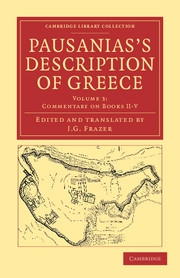
Pausanias's Description of Greece
-
- Published online:
- 05 April 2013
- Print publication:
- 10 May 2012
- First published in:
- 1898
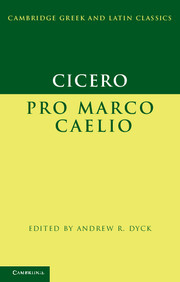
Cicero: Pro Marco Caelio
-
- Published online:
- 05 April 2013
- Print publication:
- 18 April 2013
-
- Textbook
- Export citation
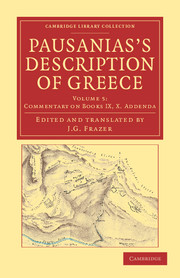
Pausanias's Description of Greece
-
- Published online:
- 05 April 2013
- Print publication:
- 10 May 2012
- First published in:
- 1898
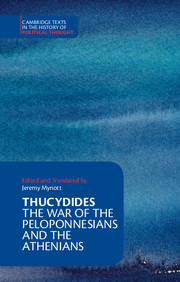
Thucydides
- The War of the Peloponnesians and the Athenians
-
- Published online:
- 05 April 2013
- Print publication:
- 28 March 2013
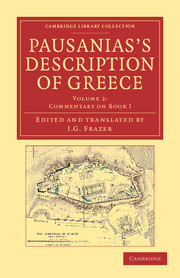
Pausanias's Description of Greece
-
- Published online:
- 05 April 2013
- Print publication:
- 17 May 2012
- First published in:
- 1898
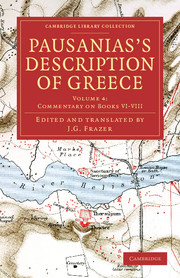
Pausanias's Description of Greece
-
- Published online:
- 05 April 2013
- Print publication:
- 10 May 2012
- First published in:
- 1898
Appendix 2 - Thucydides in the ancient world: a selection of texts
-
- Book:
- Thucydides
- Published online:
- 05 April 2013
- Print publication:
- 28 March 2013, pp 591-608
-
- Chapter
- Export citation
Twelfth year of the war, 420–19 [V 40–51]
-
- Book:
- Thucydides
- Published online:
- 05 April 2013
- Print publication:
- 28 March 2013, pp 349-358
-
- Chapter
- Export citation
Glossary
-
- Book:
- Thucydides
- Published online:
- 05 April 2013
- Print publication:
- 28 March 2013, pp 629-639
-
- Chapter
- Export citation
Greek deities, heroes and mythological figures
-
- Book:
- Thucydides
- Published online:
- 05 April 2013
- Print publication:
- 28 March 2013, pp liv-lvi
-
- Chapter
- Export citation
Second year of the war, 430–29 [II 47.2–70]
-
- Book:
- Thucydides
- Published online:
- 05 April 2013
- Print publication:
- 28 March 2013, pp 118-134
-
- Chapter
- Export citation
Third year of the war, 429–28 [II 71–103]
-
- Book:
- Thucydides
- Published online:
- 05 April 2013
- Print publication:
- 28 March 2013, pp 135-161
-
- Chapter
- Export citation
Synopsis of speeches
-
- Book:
- Thucydides
- Published online:
- 05 April 2013
- Print publication:
- 28 March 2013, pp 624-628
-
- Chapter
- Export citation
Contents
-
- Book:
- Thucydides
- Published online:
- 05 April 2013
- Print publication:
- 28 March 2013, pp v-vii
-
- Chapter
- Export citation
Principal dates
-
- Book:
- Thucydides
- Published online:
- 05 April 2013
- Print publication:
- 28 March 2013, pp xli-xliv
-
- Chapter
- Export citation
